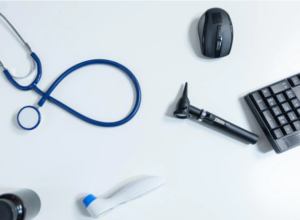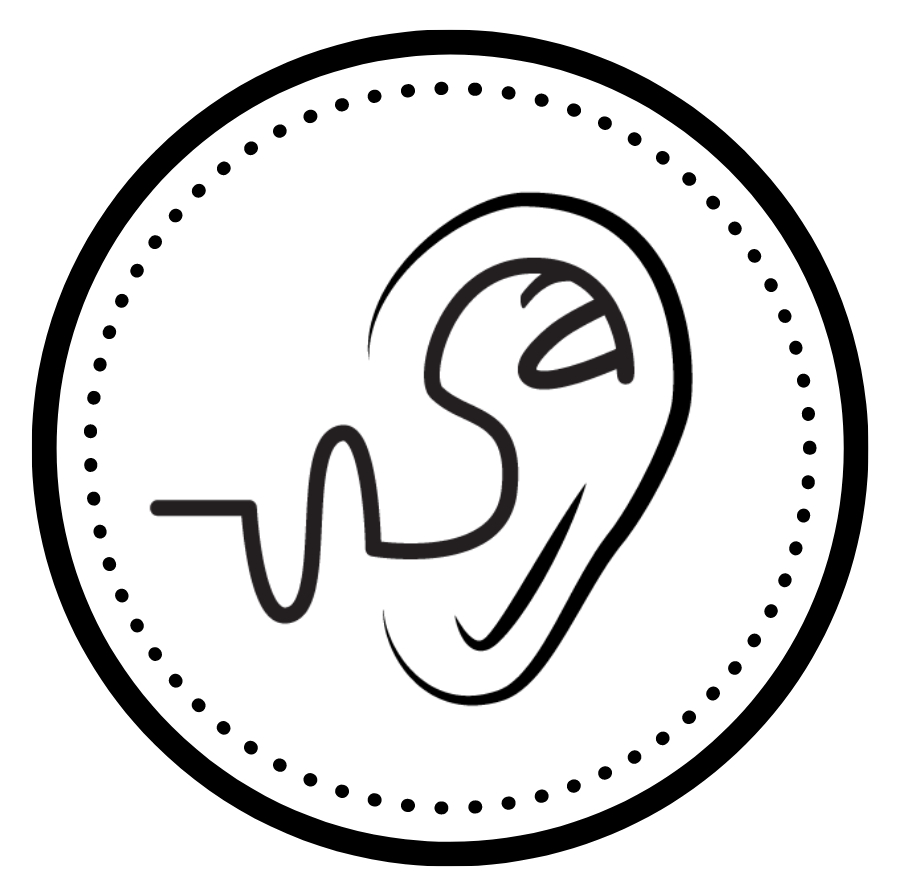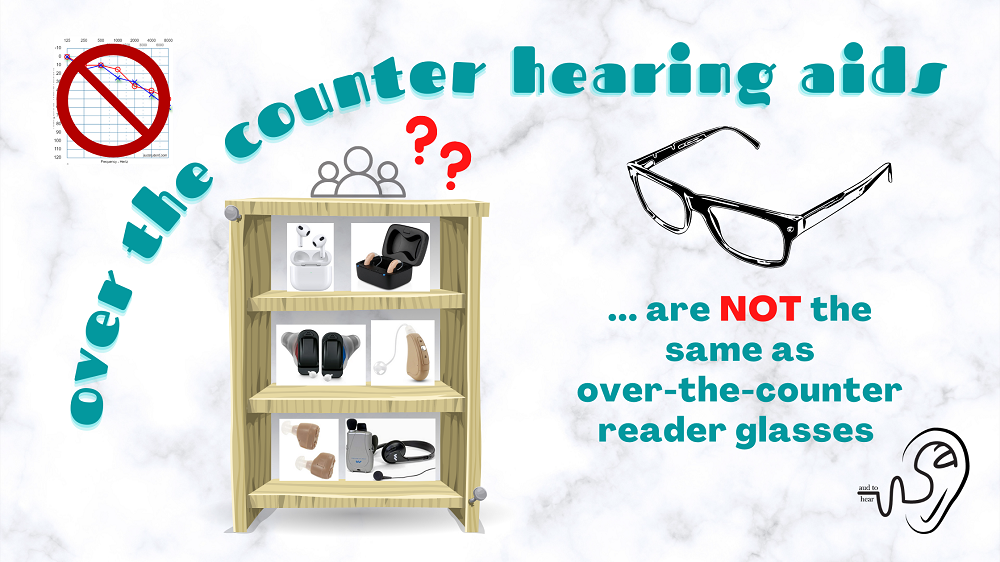I have 4 words for you before I begin my opinion piece on this subject: Better Access. More Affordable.
That’s the gist of what will likely happen when more hearing aid companies pop-up on the market and hearing devices will be sold over-the-counter (OTC) at local stores this fall. The introduction of OTC hearing aids as its own category may be new, but the products themselves are going to be similar to the hearing enhancement products already on the market.
The U.S. Food and Drug Administration (FDA) became involved in this sector of hearing healthcare when Congress passed a law in 2017 to allow it to regulate the manufacturing and sale of hearing aids to public consumers without involving a licensed professional (such as an audiologist, otolaryngologist, or a hearing aid dispenser). It took nearly five years for the FDA to finalize regulations, but alas, it’s available here. If you are interested in a lengthier version of what can be labeled as an OTC hearing aid, read it here.
OTC hearing aids are devices sold directly to consumers for the intent of treating hearing loss, regardless of whether the “perceived hearing loss” is officially or unofficially diagnosed by a medical professional.
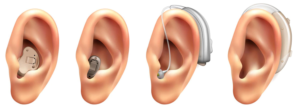
How does an OTC hearing aid differ from a prescriptive hearing aid fit by a licensed audiologist?
OTC hearing aids are targeted for adults, age 18 or older, with a “perceived mild to moderate hearing loss”. They can be sold directly to consumers without a prescription, without any kind of medical evaluation, and does not need to be fit by an audiologist (a licensed professional with extensive training on human ear anatomy/function and understands how to program hearing aids for optimal performance by the user).
Hearing aids fit by a licensed audiologist are typically ordered from hearing aid manufacturer(s) and fit to an individual’s “prescription” after they undergo a comprehensive evaluation of their hearing sensitivity and speech recognition ability. Having a valid and complete audiogram, at the bare minimum, is essential to determine how hearing aids will be programmed to a person’s hearing loss. Washington State, for example, considers a valid audiogram to be completed within 6 months of a hearing aid fitting. This matters because hearing can change gradually over several months/years (in most cases) or suddenly (due to the nature of certain ear diseases) and certain types of hearing losses may require immediate medical attention.
The significance of having a medical professional evaluate an individual’s hearing status before fitting them with any device seems to be moot when the FDA allows any adult the ability to buy an OTC hearing aid if they think “my hearing loss is probably mild to moderate, therefore this should help”. When I see patients in the clinic, some of them aren’t even aware that their hearing ability is different between ears until I review their test results with them, yet somehow the general public is expected to understand the difference between a mild vs. moderate vs. severe degree of hearing loss? And then there are people who come in for an evaluation expecting to have hearing loss when instead they have normal hearing sensitivity with auditory processing concerns. If people buy these products without an assessment, how will they truly know if their hearing loss is appropriate before using them? Also, how will people know which product to buy if there’s so many of them out there?
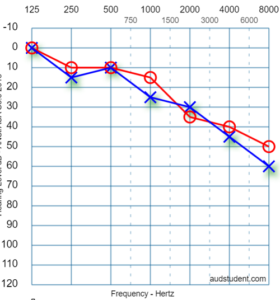
Better access means more options
I would imagine that when people are presented with an array of amplification options, there will be a lot of questions swirling about what product(s) will be the best bang for their buck. How does one know what to trust? A technologically savvy person might spend hours looking up product reviews or watch video reviews on YouTube. A prideful person might choose the smallest device that’s available. A frugal person might go for the cheapest option because maybe something is better than nothing.
See, one of the beauties of the FDA stepping into the hearing health world is that it will get more players involved in the make and sale of hearing aids as products to improve hearing health and as a result, expose more people to consider solutions for their hearing problems. People typically develop hearing loss for years before they decide to do something about it. Seeing OTC hearing aids on the shelf will be a conversation starter. Just like how gossip magazines by the checkout stands have attention-grabbing headlines to attract people to reach for them – OTC hearing aids will likely have vibrant packaging to capture the attention of those who are subconsciously intrigued by the idea of “clearer speech” and “advanced noise reduction”.
From my own point of view as an audiologist, I have encountered patients who experience difficulty with making decisions when presented with too many options. My hearing aid consultations can take up to an hour going over all the options when selecting hearing aids in my clinic. Technology levels? Styles? Earmolds? Battery? Bluetooth? Telecoil? The list goes on and on. We cover it all in depth so that our patients know what they’re working with.
The greatest advantage of seeing an audiologist for recommendations is that the conversation is uniquely focused on the patient and their listening needs. Any hearing aids presented and selected with the patient will be specific to their budget and communication goals. My role is to guide my patients into understanding 1) how hearing aids can help them and 2) realistic expectations about what hearing aids can and cannot do.
More options create higher competition and lower prices
So what does it mean to have more options available? The goal is lower prices, of course! The U.S. federal government wants to make hearing aids more affordable for Americans, and let’s be honest, aging Americans because they’re living longer and will need to be able to communicate with people (e.g. family, caretakers, doctors) around them. Approximately 37.5 million American adults have hearing loss of some degree and many are likely candidates for hearing aids. Men are twice as likely as women to have hearing loss and the risk of having hearing loss increases after the age of 60. Audiology as a profession will have to grow to keep up with the demands of a larger pool of aging adults with hearing loss.
When people live on a fixed income or don’t have the means to afford healthcare, the cost of getting hearing aids and associated services from licensed hearing healthcare professionals can certainly be one of several barriers for hearing aid adoption. Keep in mind that the cost of hearing aids is not the main reason for why more people choose not to wear hearing aids even when they can benefit from it.
However, if cost is an issue for an individual, maybe instead of going straight to the care of an audiologist, they would be more inclined to try something more affordable to improve their mild to moderate hearing loss. At least it’s a start, even if it may be a temporary fix. OTC hearing aids should likely lower the cost of the devices when there are more businesses competing for sales.
For those who come into my clinic with financial concerns, I do not hesitate to discuss applying for financial assistance to obtain hearing aids or pursuing OTC hearing aids if they truly have mild hearing loss. Treating individuals with hearing loss is my #1 priority and selling hearing aids is a byproduct “transaction” of starting the rehabilitation journey with my patients. I always encourage my patients to wear the best hearing aids that they can afford; if in the end, their decision is that they want to try OTC hearing aids to achieve better hearing, I encourage it. I’m at ease knowing that they at least sought out my professional recommendations and completed a hearing evaluation to rule out medical concerns regarding their hearing loss.
What does the future of Audiology look like?
Change. Who likes change? Like it or not, conversations about hearing aids will have to change. Audiology is a young and constantly evolving field within healthcare and audiologists will eventually adapt to the upcoming introduction of OTC hearing aids competing with the products that they dispense. Some of us might argue that nothing will change since Personal Sound Amplification Products (PSAP) have been in the market for decades and their design looks similar, if not EXACTLY the same as a traditional hearing aid. Although they may look the same side-by-side, their intended use is what differs and the intent of OTC hearing aids being on the market is what is stirring up all this change.
With these changes, we will need to highlight the importance of working with an audiologist in hearing health rehabilitation. Americans with hearing loss need us to guide them through their hearing loss journey. We can educate them about the tools available for better hearing. We can coach them through the challenging situations they continue to struggle in as their hearing loss progresses. We can train parents with a deaf or hard-of-hearing child how to navigate the complexities of growing up with hearing loss. Bottom line is that our time and knowledge is valuable. Perhaps we are not the first point of contact for people with mild hearing loss, but the hope is that seeing OTC hearing aids everywhere will provide an excellent opportunity for people to start having conversations about the importance of hearing health and reduce the stigma of wearing hearing aids.
Final points
As a new-ish Audiologist, I do not perceive OTC hearing aids to be a threat to our profession. This is me looking at a glass half full – I think it’s important for hearing aids to be more accessible and affordable to individuals who are motivated to do something about their hearing loss. It gives people at least ONE less excuse to not wear hearing aids when they can benefit from them.
I am extremely hopeful that this new change for the greater good of public health will not devalue our professional services and clinical time. We will need to advocate for ourselves better and let our patients know that we are capable of doing more than clicking a few buttons and asking “can you hear that?” over and over again. We cannot let the existence of OTC hearing aids diminish our value and skills in helping people cope with their hearing loss.
A prevailing fear among audiologists is that people might give up on all solutions for their hearing loss when OTC hearing aids don’t work for them and write off the benefits of hearing aids forever. These devices are not meant to be one-size-fits-all. There is no guarantee that they will solve people’s hearing challenges. They are most definitely NOT meant for children with hearing loss.
If they don’t work for you or the person you’re supporting, DON’T GIVE UP. It might be incredibly easy to obtain hearing aids – but it’s not always easy to learn how to use them. If you require support learning how to use hearing aids, maybe it’s worth a few more bucks to consult with a hearing health professional (i.e. audiologist).
OTC hearing aids can be effective or detrimental depending on the end user. There are too many variables that may affect a person’s success with them, so if you’re going to try them out, remember to buy at your own risk. And one last thing, before you put anything into your ears, consider asking your doctor to look and make sure your ears are clear first!
